Alan Titchmarsh: 2021 was the slowest-starting Spring of my life — but my garden has given me more pleasure than ever before
Frost, deluges, heatwaves... the weather this year has been nothing short of madness, but Alan Titchmarsh has come through the other side and is enjoying his garden like never before.

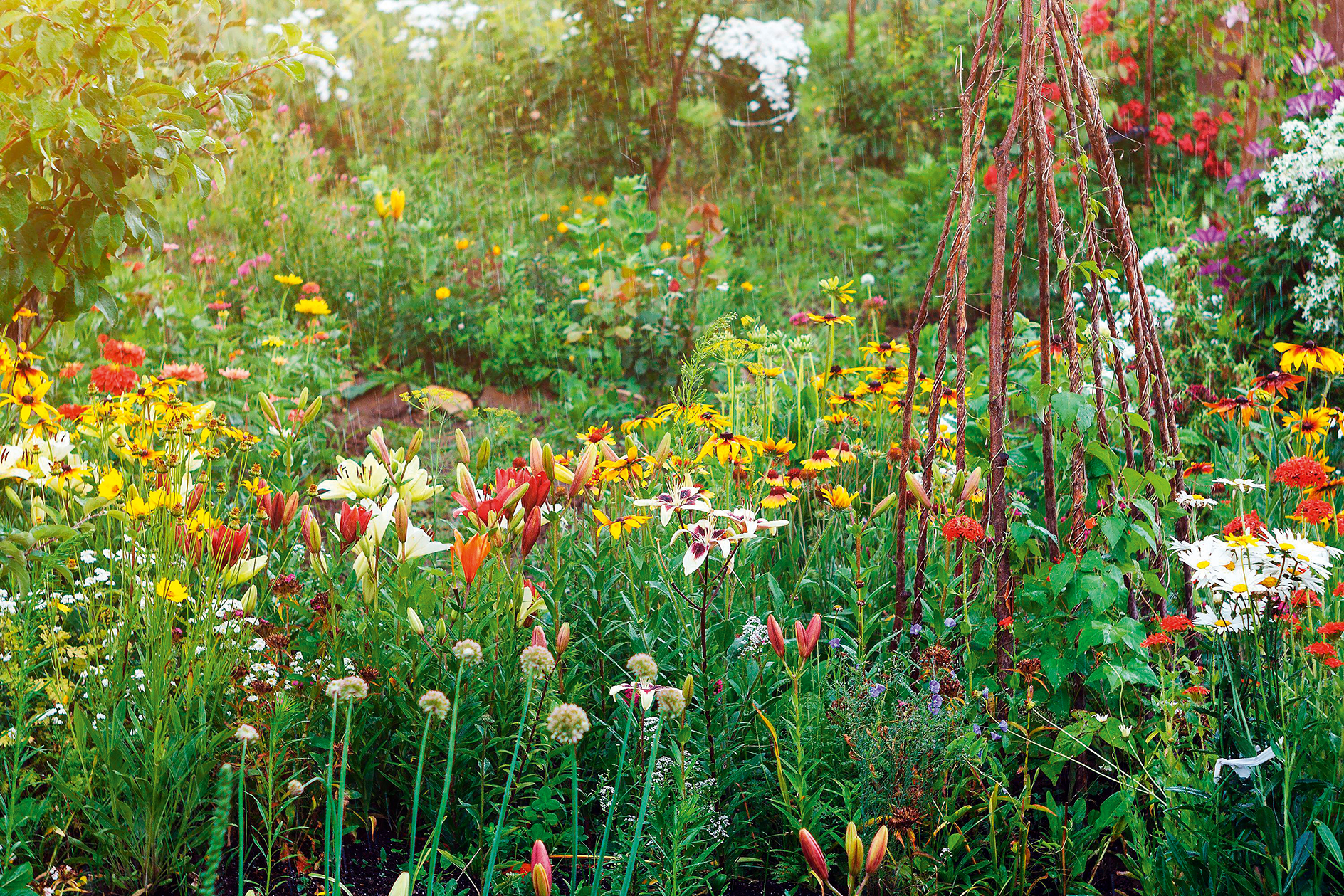
Was Dr Johnson a gardener? If he was not, he was certainly aware of the greatest preoccupation of gardeners when he opined that: ‘When two Englishmen meet, their first talk is of the weather.’ It is as true today as it was when he first gave voice to the opinion in 1758.
It set me wondering, after this extraordinary spring, with a record number of frosty nights in April followed by the double-whammy of a deluge in May, and then a stop-start summer in June, if there is ever such a thing as a ‘normal’ year. I suspect not.
The media, of course, love extremes and will do their best to dig up some meteorological sensation given the smallest handful of statistics. We are all — well, most of us — aware of global warming, even if our summers now seem not nearly so warm and sunny as those of our childhood. Memories are clearly gloss-coated for our pleasurable reverie.
But my mind is on weather — the smaller caprices of Nature, rather than the larger picture of climate. It is important we do not confuse the two. In my simple mind, weather is the ups and downs of a chapter; climate is the overall content of the book. I will leave climate to the experts, content to share with my fellow gardeners the pleasures and frustrations of the weather.
"I am too shy to drop my trousers and park my naked bottom on the earth as true country gardeners used to do."
There is no doubt about it, this spring was the slowest start I can remember in many a year. As a boy growing up in Yorkshire in the 1950s, buying packets of Bees and Mr Cuthbert’s seeds from Woolworths on a Saturday morning, my mother would always remind me to add a month on to the first recommended sowing date on the back of the packet. ‘If it says “Sow in March”, you should wait until April.’
I vividly remember envying those in the south of England who were advised that they could sow parsnip seeds in February — totally out of the question in the frozen north. That said, although 21st-century winters are milder, they tend to be wetter and that puts back sowing dates every bit as effectively as low temperatures. I cannot remember ever sowing parsnips in February, but then my part of the Hampshire Downs is not nearly so mild as those north of Milton Keynes might imagine.
This year, I did not manage a single sowing on my vegetable patch until the first week of May. Unheard of until now. It was not down to laziness or being occupied elsewhere, either. I felt the soil with my hand — the elbow is for the baby’s bath and I am too shy to drop my trousers and park my naked bottom on the earth as true country gardeners used to do. If soil feels cold, then it is probably too cold for seeds. Those committed to wet, chilly earth will decide that death is preferable to germination in such conditions. Wait a little until the soil has warmed up — the hand test — and seeds sown then will easily outstrip those given an early burial.
Exquisite houses, the beauty of Nature, and how to get the most from your life, straight to your inbox.
"Were there really more birds singing or was it simply that working from home has made us notice them more?"
The proof came in the middle of June, when rain and sun in regular rotation gave us those muggy days, which, although uncomfortable for humans, were the sort of conditions in which you can actually hear plants growing. Well, almost. You can certainly see them — day by day pushing up shoots with astounding speed and fattening flower buds overnight.
Yes, June was good growing weather. With any luck, what remains of the summer will be a memorable one for gardeners, rather than weather forecasters.
My own gardens — both in Hampshire and the Isle of Wight — have given me more pleasure this year than ever before, once those April frosts were out of the way. Were there really more birds singing or was it simply that working from home has made us notice them more? I suspect the latter, although I cannot recall ever having had more pleasure from listening to the song thrush for two hours morning and evening and the cock blackbird on the chimney top at the end of each day.
No artist in the opera house, no soaring coloratura, Can claim her vocalising is, compared with blackbird, purer. No orchestra, no maestro — as our diva has — to tell her The how and what and when to sing; he’s happy a cappella.
Sing on blackbird and cheer us into summer.
Marigolds, Myrtle and Moles — a Gardener’s Bedside Book by Alan Titchmarsh is out now
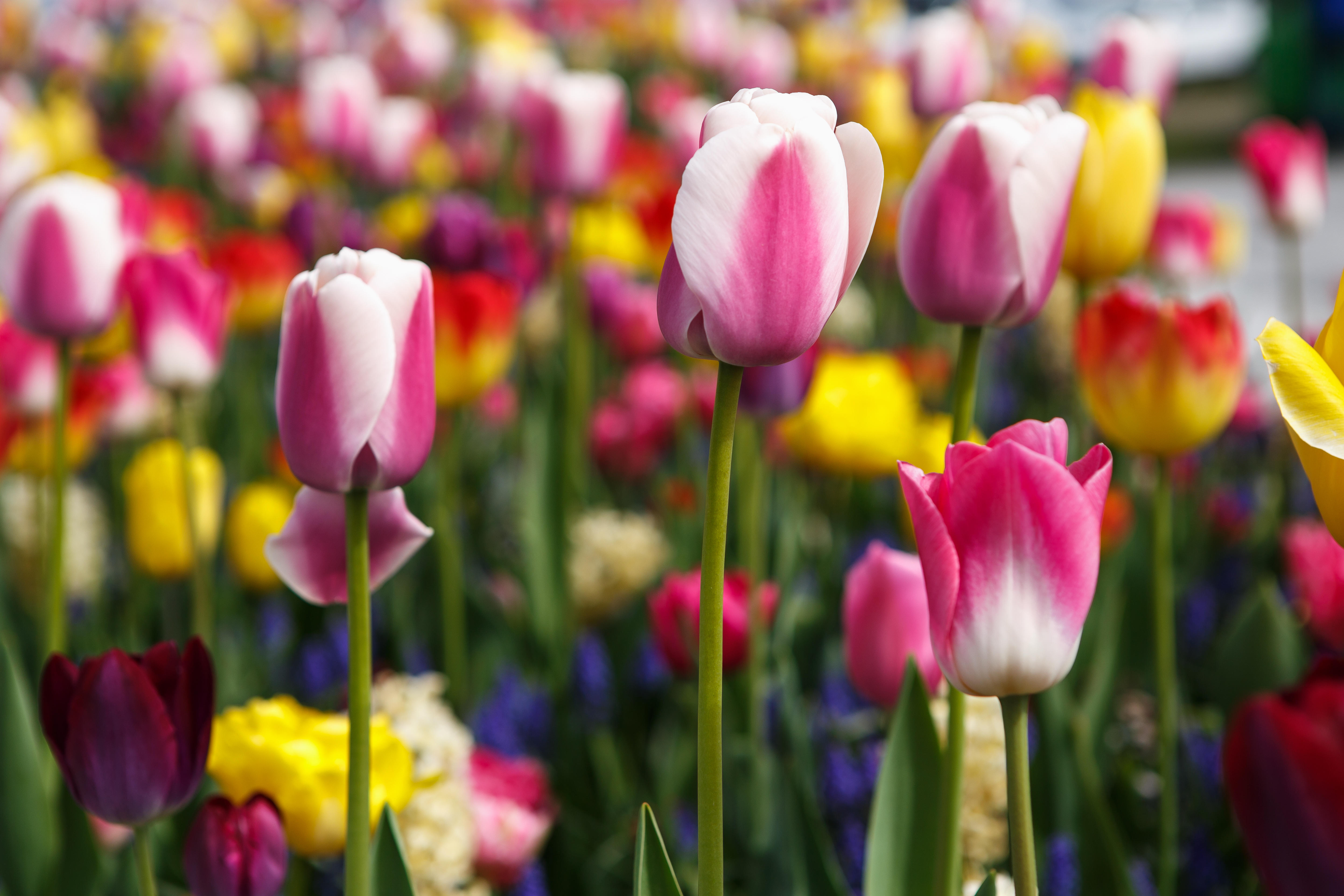
Credit: Alamy
Alan Titchmarsh: The best time of year to plant tulips
Alan Titchmars on planting tulips - and avoiding the grind of removing and storing bulbs every year.
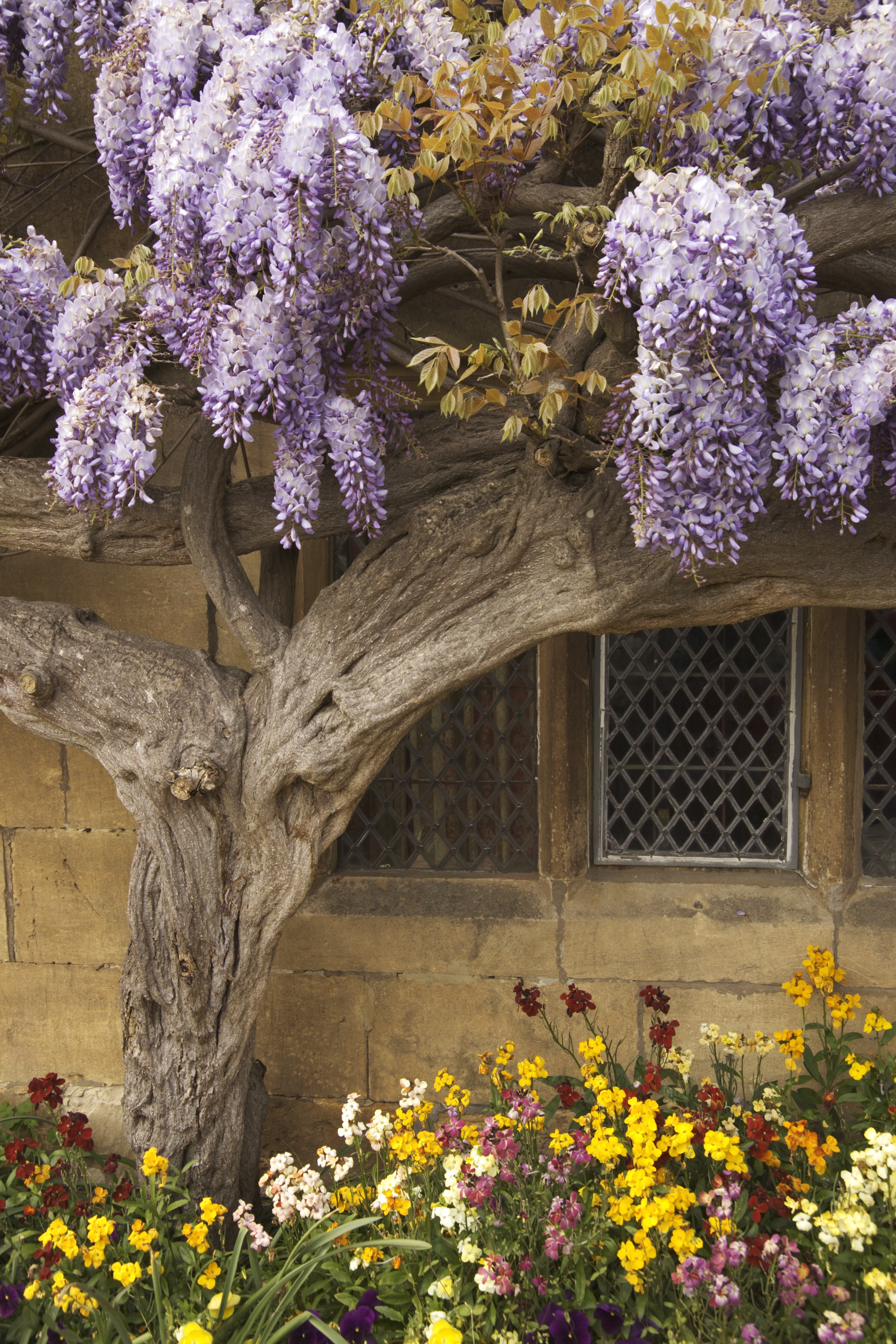
Credit: Getty
Alan Titchmarsh: A foolproof guide to growing wisteria
If you've been enviously eyeing the extraordinary wisteria on display across Britain this summer and wondering how you can grow
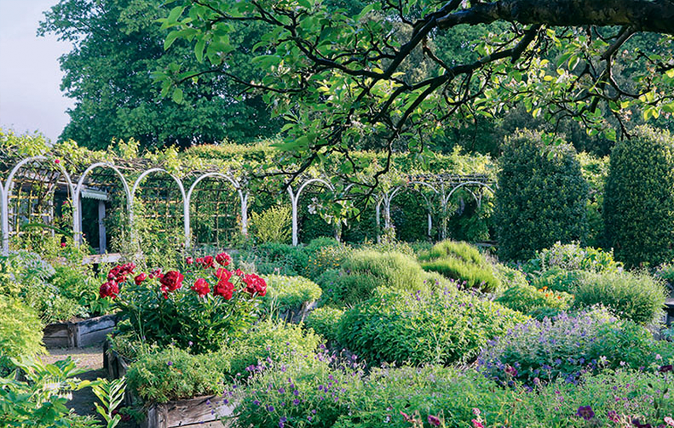
Alan Titchmarsh: The poetic pleasure of plant names
Our gardening expert on the days spent learning the names of some of the most obscure plants in Britain.
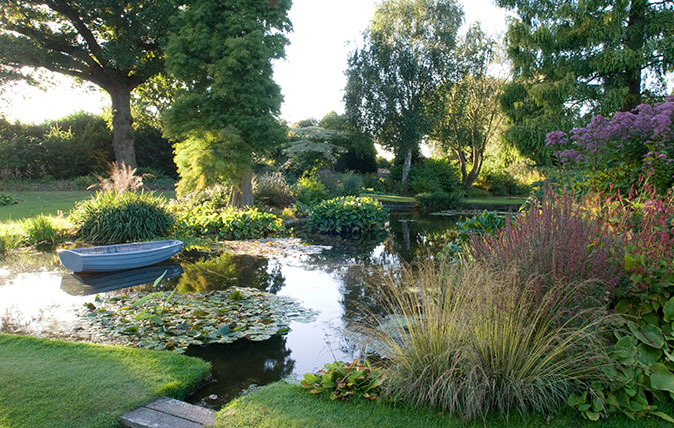
Alan Titchmarsh: How to keep a perfect pond
Alan Titchmarsh says that now is the time to clear out the weeds and keep your pond in top condition
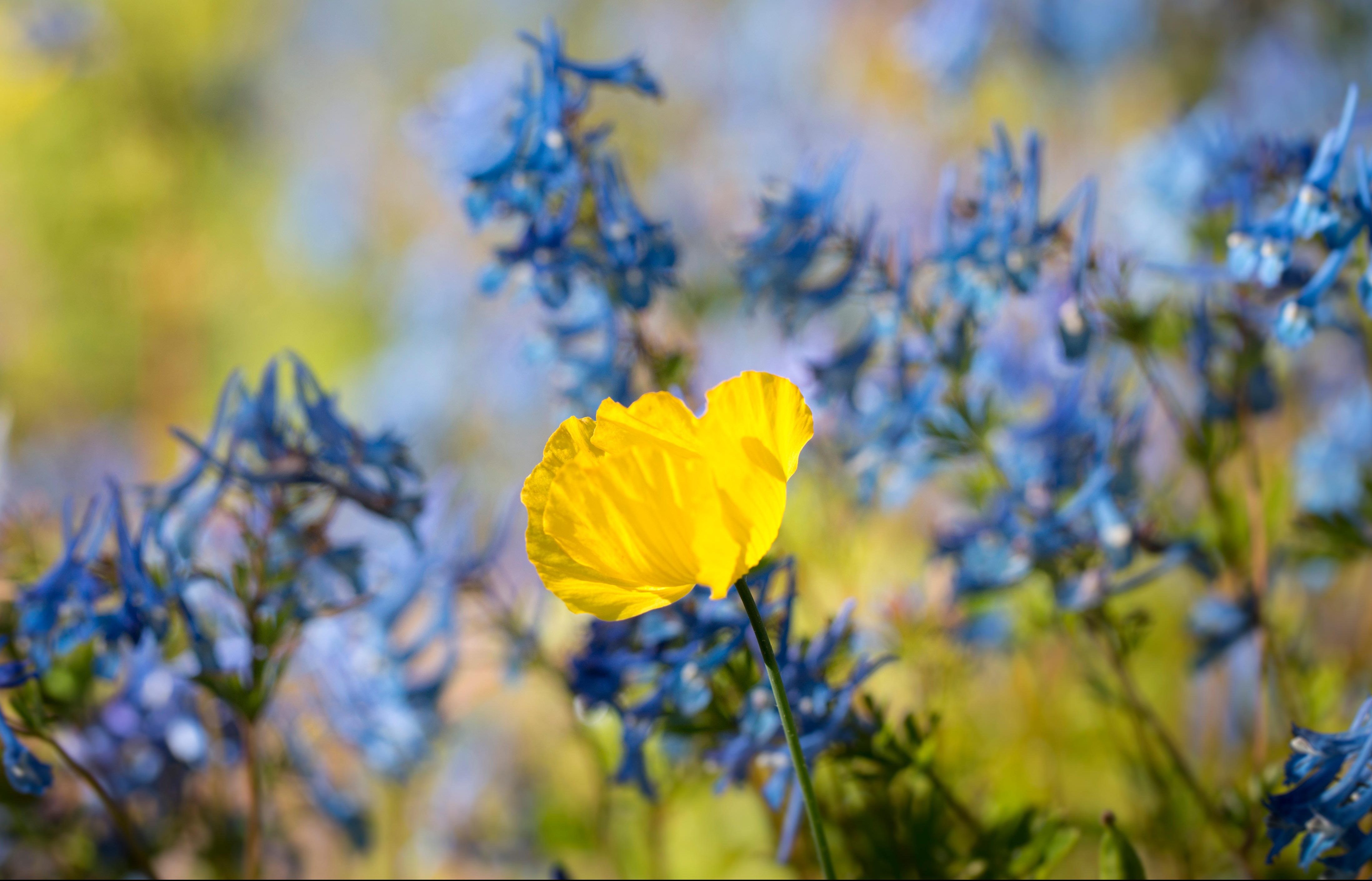
Alan Titchmarsh: The weeds I welcome with open arms
Our columnist Alan Titchmarsh used to spend hours ridding his garden of anything he hadn't planted himself. These days he
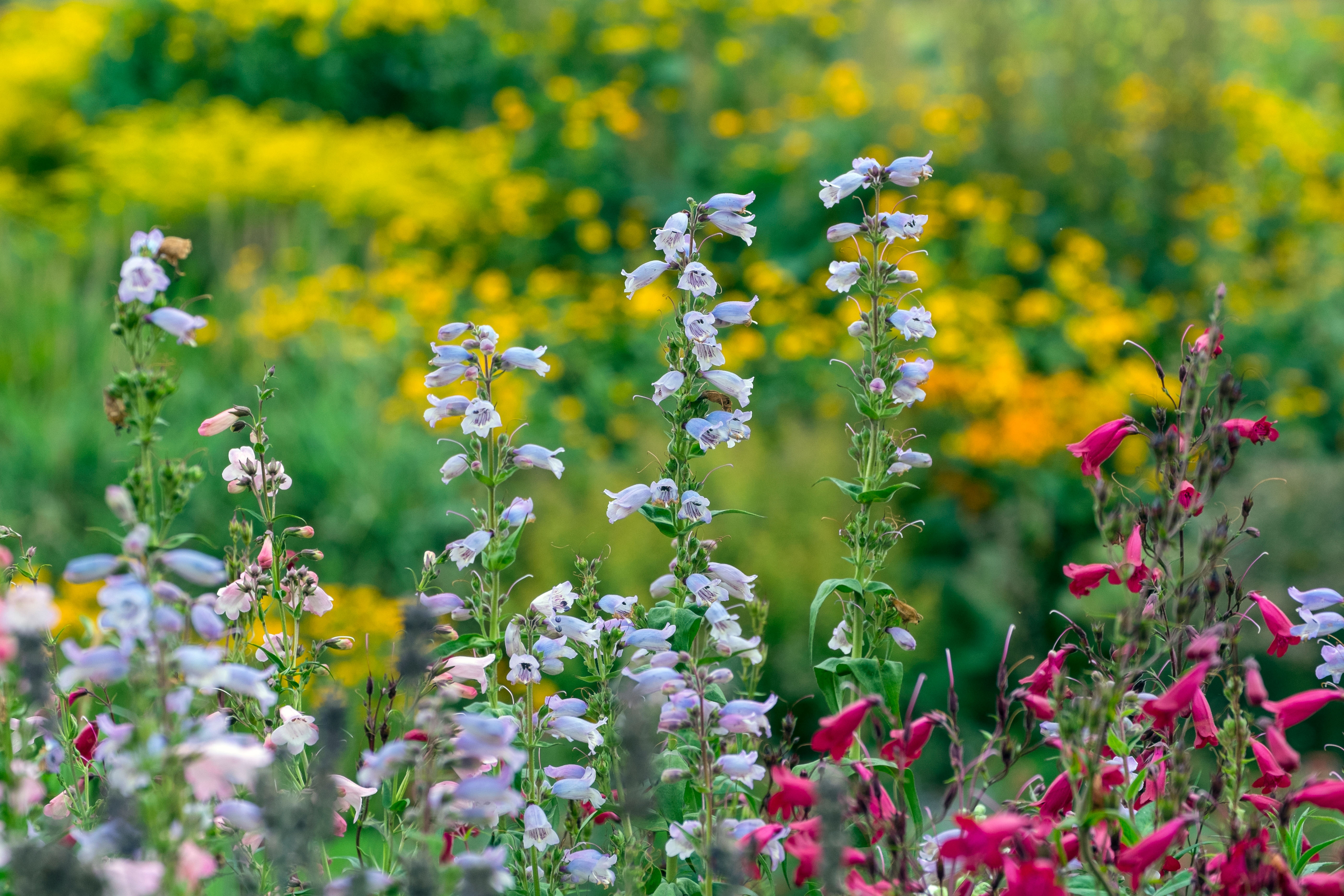
Credit: Gary K Smith / Alamy
Alan Titchmarsh: The ultimate flower for the lazy gardener
Penstemons are easy to grow, hardy, and flower for months — even the slugs don't both them. They might just be
Alan Titchmarsh is a gardener, writer, novelist and broadcaster.
